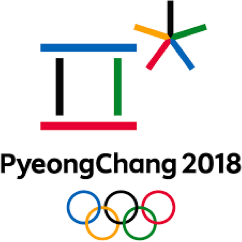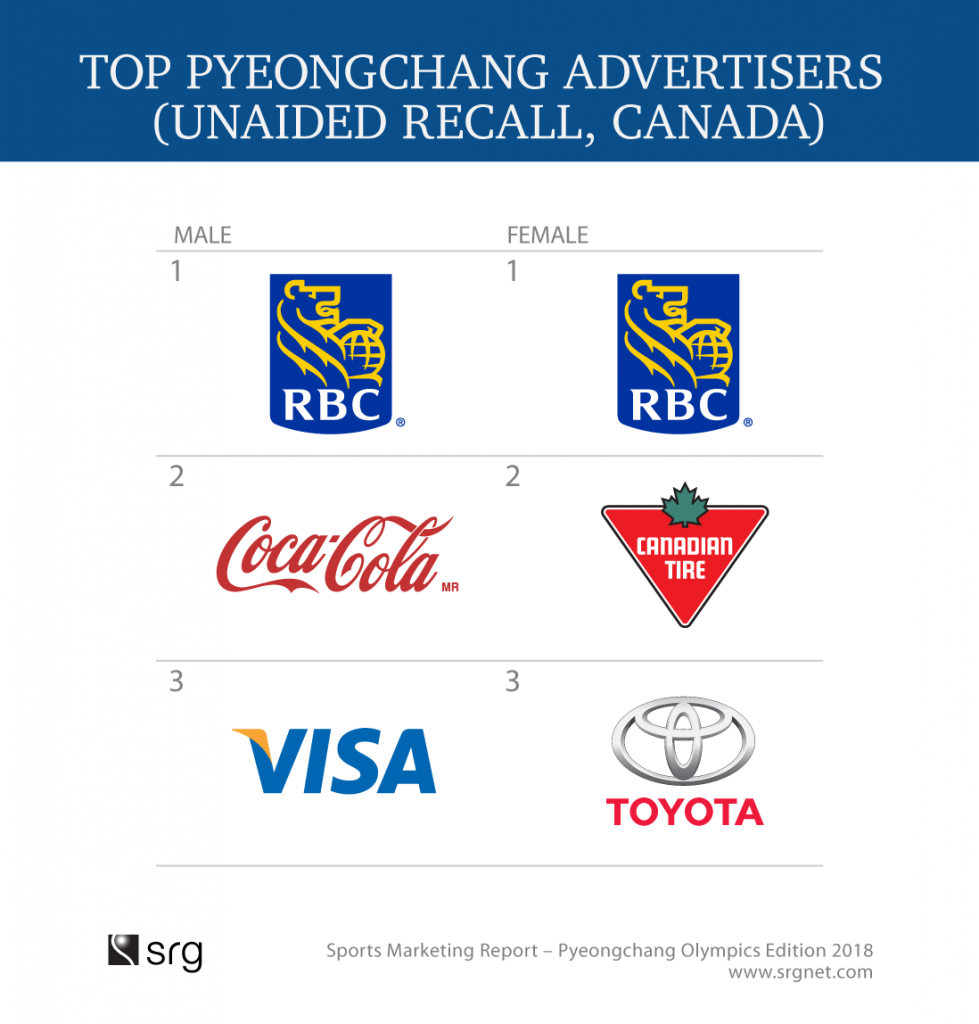The Pyeongchang Winter Olympics captured Canadians’ imaginations this winter generating strong audiences for sponsors and advertisers on TV, digital and social channels according to Solutions Research Group’s Sports Marketing Report – Pyeongchang 2018 Edition, based on 1,000 interviews conducted nationally.
According to the survey, three-in-four Canadians (75%) nationally said they followed at least some of the Olympics on any platform (TV, digital, social or mobile sources) and while this is a strong majority overall, it fell short of the 82% level who said they followed at least some of Sochi Olympics based on a comparable SRG post-event survey of 1,000 Canadians in 2014.
Engagement levels with Pyeongchang were also somewhat lower than Sochi – 48% said they followed the Pyeongchang games ‘very’ or ‘somewhat closely,’ compared to 56% who said the same in 2014 for Sochi. Lack of NHL star power at the Olympics this time around, a greater time zone difference, and greater competition for prime time TV coverage from OTT (over-the-top) services and others may have been contributing factors. The biggest decline was among Gen Z and Millennials – only 41% of those 12-29 said they followed the Olympics ‘very’ or ‘somewhat’closely, down from 53% in 2014 in that age group, a 12-point decline. Decline in the older (30+) age group was comparatively smaller down slightly to 50% from 56% for Sochi.
 RBC was the top advertiser in unaided recall metrics for Pyeongchang, up from the #3 spot in Sochi when it was behind McDonald’s and Coca-Cola. Nearly one-in-four (24%) of those following the games mentioned RBC on an unaided basis and RBC was followed by Coca-Cola (#2), Canadian Tire (#3), Visa (#4) and Toyota (#5). Other Canadian Olympic sponsors that made it to the top 10 list include Bell (#6) and Petro-Canada (#10).
RBC was the top advertiser in unaided recall metrics for Pyeongchang, up from the #3 spot in Sochi when it was behind McDonald’s and Coca-Cola. Nearly one-in-four (24%) of those following the games mentioned RBC on an unaided basis and RBC was followed by Coca-Cola (#2), Canadian Tire (#3), Visa (#4) and Toyota (#5). Other Canadian Olympic sponsors that made it to the top 10 list include Bell (#6) and Petro-Canada (#10).
RBC took the top spot among both men and women. Coca-Cola and VISA were #2 and #3 respectively for men while Canadian Tire and Toyota rounded out the top 3 among women.

Among other notable findings of the research:
- TV was king for keeping up with the games, with 72% saying it was the most important source for following the Olympics overall and 28% saying it was a mobile device or a laptop/PC. While TV’s lead over mobile/digital continues to be very large, the gap has narrowed somewhat from the 2014 results when 78% said TV was the most important source.
- Mobile and online were prime for younger demographics, not surprisingly and especially the 18-29 age group where 52% said digital and mobile devices were most important in how they followed the Olympics vs. 48% saying the same for TV.
- Search was important in helping fans engage with the Olympics – overall 68% said they searched something related to the Olympics in the two-week period, with 40% searching something about the sports, athletes, standings or schedules on multiple occasions.
- Top sports followed in order were: Hockey, Figure Skating, Snowboard, Curling and Speed Skating.
- CBC received a stellar grade on the overall job they did, averaging an ‘A.’
- 63% of those following the games gave the CBC an A+ or an A while 22% gave it a B+.
- This was comparable to than SRG’s 2014 benchmark for Sochi: at that time, 66% gave the broadcaster an A+ or an A)
Technical: SRG’s Sports Marketing Report – Pyeongchang Olympics Edition is based on interviews with 1,000 Canadians conducted in late February nationally. Respondents who followed the Pyeongchang Olympics very or somewhat closely were asked which sponsors/advertisers they noticed on TV, online or mobile for each on an unprompted, unaided basis. The responses were used to determine the unaided recall rankings. Sports Marketing Report consists of a series of independent syndicated research studies providing an objective and comparative perspective on sports event audiences and sponsors’ return on investment for sports events (e.g., Olympics, Pan Am Games, FIFA Soccer) and properties (NHL, NBA, etc.). For more information on the report, please contact Robin Dryburgh robin@srgnet.com